Last updated on April 30th, 2024
How much does a new boiler cost in 2024?
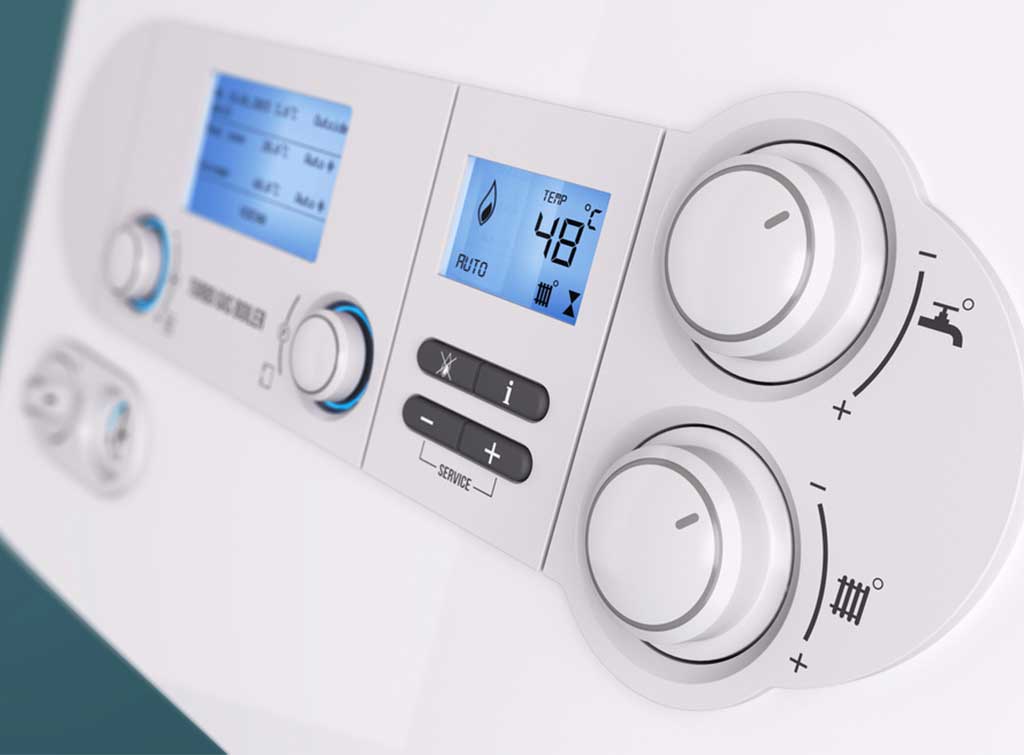
If you’re looking to replace your boiler or install a new one, this guide is for you. Keep reading to find out more about the average new boiler cost in the UK.
As part of this guide we’ll look at the cost of boilers themselves, the installation cost and other replacement boiler costs.
Fast Facts
- A boiler supply and installation ranges from £2,000–£4,000
- Gas boiler running costs start at around £90 per month
- Most boilers have a lifespan of about 10-15 years
The biggest benefit of having a new boiler is that it will be a lot more efficient. New boilers are often 90%+ efficient, whilst older models can be less than 50% efficient.
That means that a new boiler will work better and use less energy. And the big win there is that you should see noticeable savings on your energy bills.
How much does a new boiler cost?
| Type of Boiler | Average cost |
|---|---|
| Combi Boiler | £1,500 + VAT |
| System Boiler | £1,750 + VAT |
| Conventional Boiler | £2,100 + VAT |
| LPG boiler | £950 + VAT |
| Biomass boiler - manual-fed | £7,000 + VAT |
| Condensing boiler | £1,750 + VAT |
| Additional costs | |
| Cost of installation | £1,250 - £4,000 + VAT |
| Wifi-enabled heating controller | 200 + VAT |
Our costs are ballpark averages – get a local tradesperson to quote now
It’s difficult to estimate the average cost of a new boiler replacement as there are so many variables to consider.
Just the new boiler itself can cost between £1,200 - £10,000 without the cost of labour.
With labour and extras added, you can usually expect a new boiler supply and the labour to install it to cost between £3,000 - £15,000.
Although these costs act as a good guide, new boiler prices will vary. To understand what boiler you need for your home and how much it will cost, speak to a professional.
We recommend getting advice and guidance from one of our many approved Checkatrade boiler installers.
Find and book your trade with us and we'll guarantee their work up to £1,000*.
Guaranteed for 12 months. Eligibility and T&Cs apply

How much does it cost to fit a new boiler?
The cost of fitting a new boiler depends on whether you’re replacing the boiler, converting it to a different type, or moving it to a new location.
Here are some average prices for fitting a new boiler in the UK:
- Replace a combi boiler with another combi boiler – £2,500 - £4,000
- Convert a back boiler to a combi boiler – £3,000-£5,000
- Moving your boiler to a new location – £3,000
How much does a plumber charge to install a boiler in the UK?
The labour cost of fitting a boiler will vary, depending on factors such as the type of boiler and complexity of the installation.
You’ll be looking at paying somewhere in the region of £1,250 - £4,000 + VAT for the labour of your new boiler installation.
New boiler installation hourly rates
Rather than an hourly rate, most boiler fitters charge a day rate. The average rate for a boiler engineer to install a new boiler is about £300 per day.
To give you an idea, here are average timeframes for a new boiler installation:
- A simple, like-for-like boiler installation – 4 – 6 hours
- Converting a regular boiler to a combi boiler – 1.5 – 2 days
- Moving the location of the boiler – this will depend on where it’s moving to
How much does it cost to replace a boiler in the UK?
If you’re replacing your existing boiler with the same type of boiler and keeping it in the same place then the cost will usually be at the lower end of the scale.
However, if you fit a different type of boiler or move the location of the boiler then the labour cost will be higher. That’s because the installation process will be more complex and take longer to complete.
- Combi for combi swap – £3,000-£5,000
- Back boiler to combi boiler conversion – £3,000-£5,000
- Moving the location of the boiler – £900
How much does boiler conversion cost?
If you have an old and outdated boiler, it’s likely to be inefficient and not heating your home properly.
In this case, converting your boiler to a more efficient fuel type is a smart move. Here’s a quick rundown of the costs you’d have to pay for a boiler conversion:
Regular to combi boiler conversion cost
Converting a regular boiler to a combi boiler costs around £4,350 – and usually takes about two days.
The cost includes the price of laying new pipeworks as well as removing and discarding your old boiler and water cylinder.
System to combi boiler conversion cost
If you want to replace your system boiler with a combi boiler, your boiler conversion cost will be about £3,750. This conversion will take up to around three days.
Back boiler to combi conversion cost
The average back boiler to combi boiler conversion cost is around £4,600.
The total cost will depend on several factors, including the new boiler you buy, the location of the existing boiler, and any new pipework needed.
Cost to move a boiler vs buying a new boiler
The ballpark cost to move your boiler will be around £900.
That cost will largely depend on the complexity of the job. Basically, the more complicated an installation is, the more it will cost.
Find out more about these costs in our cost to move a boiler guide.
 Cost of new boiler and radiators
Cost of new boiler and radiators
When replacing your boiler, it might be worth considering replacing your radiators as well.
On average, you would spend around £200 to remove and replace a double panel radiator.
4 reasons why replacing old radiators is a good idea:
- New radiators have proven to be up to 50% more efficient than radiators that are 10+ years old
- Over time radiators rust and this can build up as sludge, which needs to be flushed to keep the radiator working efficiently
- Modern radiators are available in a range of styles and designs to suit any home
- Old radiators are more likely to leak due to being weakened by rusting over the years
With these reasons in mind, you can see why you might be better off getting new radiators installed with your new boiler.
For more information, check out our guide to the cost of removing and replacing radiators.
Boiler installation cost calculator
To help you plan your budget, here’s how to calculate how much you will need to spend on installing a boiler.
The total cost will depend on a number of choices you make, but you’ll need to factor in the following:
Cost of boiler + Labour cost of boiler fitter + Additional costs*
*Additional costs include charges for things like additional pipework, an extended warranty, and disposal of your old boiler.
New boiler prices – breakdown by boiler type
Combi boiler costs
Where conventional and system boilers need a hot water cylinder to store hot water, a combi boiler takes its water supply directly from the mains and produces instant hot water.
Combi boilers provide the option of both stored hot water and direct-fired hot water, which allows:
- Back-up hot water via an immersion heater in the event of a boiler breakdown
- A traditional tank-heated airing cupboard
- Unlimited hot water at one or more outlets
How much does it cost to fit a combi boiler?
The average supply and installation of a combi boiler costs .
If you’re replacing a different type of boiler your cost of combi boiler installation will generally be higher to convert the system.
How much does it cost to replace a combi boiler?
The average cost to replace a combi boiler is somewhere in the region of £1,500 + VAT for the boiler itself. Plus, the cost of installation, which is around £1,250 - £4,000 + VAT.
That said, the cost of replacing a combi boiler will depend on:
- Make and model of your new boiler
- Type of boiler – replacing like-for-like is cheaper than changing the type of boiler in your home
- Whether you move the location of the boiler
- Complexity of the installation
- Where you live – labour costs tend to be higher in London and the South of England compared to the rest of the country
Gas combi boiler installation cost
Gas combi boilers are energy-efficient and compact in size, meaning lower energy bills. You can also expect hot water on demand, which is a huge plus during the colder months.
Unfortunately, gas combi boilers are better suited to smaller homes and can be incompatible with old pipework.
If you choose a combi boiler, the average gas boiler cost for supply and installation is £2,900 + VAT.
Electric combi boiler cost
| Type of electric boiler | Power | Cost - Range Low | Cost - Range High | Average UK Cost |
|---|---|---|---|---|
| Boiler without in-built cylinder (excluding labour) | 12 kW | £1,250.00 | £1,800.00 | £1,525.00 |
| Boiler with in-built cylinder (excluding labour) | 12 kW | £1,750.00 | £2,500.00 | £2,125.00 |
| Wall-mounted boiler with cylinder (excluding labour) | 3-15 kW | £1,750.00 | £2,500.00 | £2,125.00 |
| Floor-standing boiler with cylinder with long warranty (excluding labour) | 10-18 kW | £2,350.00 | £4,500.00 | £3,425.00 |
Electric combi boilers use electricity to heat the water that is supplied to your taps, cylinders and radiators.
They’re usually more compact, quieter and cheaper to install than a gas boiler as there’s no gas water pipe or flue.
Electric combi boilers are better for the environment too, making them ideal if you’re looking for a cleaner alternative to gas.
The average starting electric combi boiler cost is about £1,525.00.
Electric combi boiler running costs
While these boilers are quick and easy to repair, electric combi boiler running costs can be expensive.
Based on the UK average of 24.50p per kWh, running a 12kw electric boiler at 70 hours a month costs £296.00 per month.
In comparison, the average monthly gas boiler cost is only about £120.00 per month.
This is simply because the cost of electricity is higher than gas. But, as the efficiency of electric boilers is far higher, you’ll get much more heat generated for the same cost.
As a result, it may mean that it’s actually cheaper to heat your home with an electric combi boiler.
Oil combi boiler installation cost
| Type of Boiler | Boiler cost lowest | Boiler cost highest | Installation cost lowest | Installation cost highest | Average total UK cost |
|---|---|---|---|---|---|
| Heat only | £1,500.00 | £2,900.00 | £900.00 | £2,000.00 | £3,650.00 |
| System | £1,600.00 | £2,500.00 | £1,250.00 | £2,500.00 | £3,925.00 |
| Combi | £800.00 | £3,100.00 | £900.00 | £2,000.00 | £3,400.00 |
If your property isn’t connected to the main gas or electric network, an oil combi boiler can be a good alternative for heating your home and water.
If a combi boiler is the right fit for you, the average new oil boiler cost is £3,400.00.
The cost of oil boiler installation is often higher than some other heating systems, such as electric boilers. However, when it comes to running costs the average oil boiler cost tends to be cheaper.
Types of combi boiler
If you’ve decided on a combi boiler you now need to decide on the type you want.
Gas combi boilers are the most popular choice in the UK, but you also have oil, LPG and electric combi boilers:
- Gas combi boilers use natural gas and are a common choice for any home that’s connected to the gas network
- Oil combi boilers are an option for homes without an existing gas connection and use an oil storage tanker
- LPG combi boilers use liquefied petroleum gas (or LPG) and are an energy-efficient way of providing hot water
- Electric combi boilers function slightly differently as they heat water by passing it over a hot element instead of burning fuel
Pros and cons of installing a combi boiler
Before you rush to buy and install a combi boiler, it’s worth weighing up the advantages and drawbacks:
Pros of a combi boiler
- High energy efficiency
- Lower energy bills
- Compact size
- Easy to install
- Hot water on demand
Cons of a combi boiler
- Not suitable for large homes
- Can be incompatible with old pipework
- Not good for homes with weak water main pressure
You can get quotes on all of these boilers by entering your postcode below to find a local Checkatrade boiler expert.
How much does a system boiler cost?
System boilers both supply your central heating system while storing hot water for domestic use in a cylinder. This type of boiler is fed by the mains water supply.
A new system boiler cost is around £1,750 + VAT. As with combi boilers, however, system boilers can be fuelled by oil, gas or electricity.
The average new gas system boiler cost is around £2,250.00. A new oil system boiler costs some in the region of £3,925.00.
To simply upgrade to a newer model, you can expect to pay £1,750 + for a basic system boiler with a 5-year warranty.
A new high-end system boiler will cost around £2,500 + – including supply and installation.
Pros and cons of installing a system boiler
Before deciding whether to invest in a new system boiler, it’s worth looking at the best and the worst parts of owning one.
Pros of a system boiler
- More compact than conventional boilers as no need for a cold water tank
- Have the capability to supply warm water to multiple taps simultaneously
- Good mains water pressure
- Can be compatible with solar energy
Cons of a system boiler
- Hot water is heated up before use so you will need to think in advance about when you will need it
- Larger than combi boilers
- You will have only a limited amount of hot water depending on the size of your tank
Electric boiler costs (system boiler)
The average new electric system boiler cost is £1,750 + VAT – for supply only.
When compared to the above costs of gas and oil system boilers, you see that there are significant savings to be made with electric boilers:
- Quicker and cheaper to install than other fuel types
- Lower maintenance costs
- No risk of a gas leak
- Reduced environmental impact
Electric boiler running costs
Whilst the fuel cost of running an electric boiler is higher than other fuel sources, the increased heat output can offset this cost.
Some of the main factors that will affect the cost of running an electric boiler include:
- Size and layout of your home
- Amount and quality of insulation
- Number of windows
- Any draughts
- Your electricity tariff (this will play a big part so be sure to shop around for the best energy rates)
Biomass boiler cost
On average, the price of a biomass boiler by itself is around £7,000 + VAT.
The average total cost of supplying and installing a biomass boiler is closer to £19,000.
Biomass boiler installation costs range from £5,000 for a small domestic boiler to £22,000 for a larger commercial boiler.
Biomass boiler fuel costs
A biomass boiler, unlike a gas or oil boiler, uses wood pellets that have been sustainably sourced.
And good news. Because biomass boilers use eco-friendly fuel, there’s government funding available to help with the running costs.
As a result, while the cost of installing a biomass boiler is higher than other boilers, the fuel costs are much lower.
The average biomass boiler fuel cost is about 4.17p per kWh. Here are some of the average fuel costs of a biomass boiler in the UK:
- Wood chips – £175 per tonne
- Wood logs – £650 per tonne
- Wood pellets – £750 per tonne
Condensing boiler cost
Condensing boilers use the process they use to maximise energy efficiency.
Instead of allowing heat to be wasted in the flue, these boilers are designed to not only trap the heat but also use the latent heat from condensation.
As a result, these boilers are up to 90% more efficient. And, the condensing boiler cost is not very high either.
As a ballpark average, a new condensing boiler cost normally averages at £1,750 + VAT.
The installation cost may vary based on your circumstances and the type of boiler. Condensing boilers come in two varieties – regular and combi.
A regular boiler has a hot water tank and can supply energy to a large-sized house.
The combi condensing boiler, on the other hand, does not have a water tank. This makes it more compact, but it also means it is suitable for smaller houses and flats.
If you’re replacing a regular with regular, your condensing boiler installation costs would average £800.
However, if you’re switching from regular to combi, there might be plumbing changes required.
As a result, you can expect to spend around £1,550 in combi condensing boiler installation costs.
Conventional boiler cost
If combi and system boilers don’t fit your requirements, there’s also the option of conventional or ‘heat only’ boilers.
These are often cheaper than other boilers but require hot and cold water tanks to be installed.
Conventional boilers heat previously stored water until it is ready to be used and are a great option for large homes.
For smaller conventional boilers, the starting cost of a new boiler may be as little as £1,250. The size you need will depend on the size of your home and your budget.
It’s worth noting that certain ‘heat only’ boilers do not supply hot water, so they’ll only heat your home.
If in doubt, speak to a local boiler expert to ensure that you’re getting the right boiler for your needs.
Pros and cons of installing a conventional boiler
In order to know whether a conventional boiler is the right choice for you, it is wise to consider the advantages and disadvantages of these boilers:
Pros of a conventional boiler
- A great way of providing warm water to multiple showers or taps
- Easy maintenance
- Can still provide hot water if mains pressure falls
- An immersion heater can be used to ensure the hot water supply continues even if the boiler breaks down
Cons of a conventional boiler
- The need for hot and cold feed tanks means these boilers take up more space
- Doesn’t always supply the best pressure for showers
- Less efficient than other options. Heating loss can occur if water is stored for long periods of time
- During high periods of demand, you may run out of hot water
Do I need a new boiler?
If you’ve had your boiler for a long time, you might be wondering ‘when should I replace my boiler?’
To help you, here are some of the signs that you need a new boiler…
1. Repairs cost more than a new boiler
With very old boilers, you may find that you’d be able to buy and install a new boiler with the money you need to spend to replace the old one.
If your boiler repair quote is high, it’s sensible to look into completely replacing your boiler.
2. Your existing boiler isn’t doing the job
Is your water taking too long to heat up? Or it just doesn’t heat up enough for your and your family’s needs? That’s a sign that you might need a new boiler.
Equally, if your boiler consumes way too much power for a small amount of heat, it’s time to consider replacing it.
This can be an important factor if you’re selling your house. A boiler with a higher efficiency rating can add value to your home and make it more appealing to buyers.
3. Your boiler is very old
Most boilers have a lifespan of around 10-15 years. If your boiler is older than that and stops working properly, it may cost more to repair it than to replace it.
Modern boilers typically offer excellent performance, optimum efficiency and smart tech features.
4. You want to move your boiler to a new location
While not as important as the previous points, being able to reach your boiler is important. If it’s hard or awkward to access where it is, you may want to relocate it.
If you are moving your boiler, it’s usually a good time to consider upgrading to a new model. Newer boilers are generally smaller and take up less space.
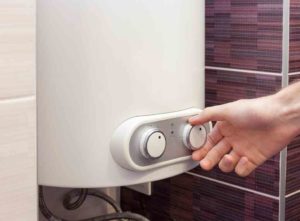 Quick boiler type checklist
Quick boiler type checklist
So, we’ve mentioned a few different types of boilers. If you’re not familiar with them, you wouldn’t be able to make the best choice for your home. So, let’s find out what these different types of boilers are.
There are three main types of boiler in the UK: combi, system and conventional (regular). Not sure which type of boiler you have in your home? If in doubt, use our quick guide below:
- With a combi boiler, there will be no storage tank
- With a system boiler, there be a hot water storage tank in an airing cupboard
- With a regular boiler, there will be a hot water storage tank in an airing cupboard and a cold water storage tank in the loft
Note: Check the cold water storage tank in the loft is connected, the house may have upgraded to a system boiler and the tank may be disconnected but still in place in the roof.
We’ve covered all the boilers and their rough cost estimates below.
What size boiler do you need?
When installing a new boiler, you must get the right size boiler for your home. Boilers in the UK are sized based on their output in kilowatts (kW), rather than their physical size.
As a general rule, the more heat you need for heating and/or hot water, the higher the boiler output you’ll need.
One of the easiest ways to work out which size boiler you need is to count the number of radiators, bathrooms and bedrooms you have in your home:
| No. of radiators | No. or bedrooms | No. of bathrooms | Boiler size |
|---|---|---|---|
| 0-5 | 1 | 1 | 9-18 kW |
| 5-10 | 2 | 2 | 24-27 kW |
| 10-20 | 3 | 3 | 28-34 kW |
| 20+ | 4+ | 4+ | 35-43 kW |
For larger homes (4+ bedrooms and 3+ bathrooms), you’ll most likely need a system or regular boiler to efficiently meet your heating needs.
Issues if your boiler is too big (oversized)
Big isn’t always better when it comes to boilers, as having an oversized boiler can cause a number of issues, including:
- More power needed to heat the same volume of water
- Wasted energy
- Higher energy bills
- Poor or unreliable performance
Problems if your boiler is too small (undersized)
Nobody wants to wake up to a cold house and freezing shower on a cold winter’s morning. If your boiler is undersized for your home then you could be dealing with these issues:
- It won’t be able to keep up with the heating demands of your home
- Lack of hot water
- Lack of heating
Thankfully, modern boilers are much more efficient than their predecessors so it’s easier to work out the size of boiler that you need for your home.
If in doubt, speak to your local experienced boiler fitters for their professional advice and guidance on choosing the right size boiler.
Benefits of a new boiler
Here are some of the benefits of installing a new boiler in your home:
- Energy efficiency: A new boiler will produce more heat, heat water quicker and use less energy to do so
- Lower heating bills: Increased efficiency means lower energy bills, as your new boiler won’t use as much energy
- Quieter home: Modern boilers are quieter than older models, so your home will be lovely and peaceful
- More space: New boilers are smaller and space-efficient so it frees up more cupboard space for you to utilise
- Accurate temperature control: New boilers are much more reliable than older ones at giving you the right temperature
- Better value for your property: Energy rating affects the value of a property and a new boiler will get you a better energy rating
Which is the best boiler?
The best boiler for your home will depend on a number of factors, including the size of your home, the type of heating system you have, and your budget.
The likelihood is that you’ll often be choosing between the UK’s leading boiler brands: Worcester Bosch, Vaillant, Alpha, Viessmann, and Ideal.
We’ve put together an overview of those five brands for you.
Worcester Bosch boilers
- Founded: 1962 in the UK (becoming part of the Bosch Group in 1996)
- Reputation: A solid British boiler brand that provides reliable and energy-efficient boilers
- Performance: Worcester Bosch boilers is renowned for their high efficiency ratings, with many of the boiler models in their Greenstar range boasting an ErP rating of ‘A’ for heating and hot water.
- Reliability: Customer satisfaction is high on Worcester Bosch’s agenda and their boilers are well-known for their excellent reliability and longevity – resulting in them winning the Which? Best Buy award.
- Price: Although Worcester Bosch boilers aren’t the cheapest on the market, their slightly higher prices are often justified by their solid reputation of quality and reliability.
- After-sales support: When you buy a Worcester Bosch boiler you’ll typically be given an extensive warranty – some of their models come with up to 10 years of cover (when installed by a Worcester Accredited Installer).
Vaillant boilers
- Founded: 1874 in Germany – fun fact, Vaillant introduced the first-ever gas-fired central heating system and the combi boiler!
- Reputation: Innovation and sustainability are the name of the game when it comes to Vaillant, and they’ve become extremely popular for their eco-friendly and energy-efficient heating solutions
- Performance: Vaillant consistently achieves high-efficiency ratings with their boilers, with many models gaining an ErP ‘A’ rating for heating and hot water
- Reliability: Over the years, Vaillant boilers have become well-known for their reliability and high quality, winning them the Which? Best Buy award on multiple occasions
- Price: Models available for various budgets, they’re not usually the cheapest but their quality and reliability explain the slightly higher price tags
- After-sales support: Depending on the model of boiler, Vaillant offer warranties from 2 to 10 years for their boilers – when installed by a Vaillant Advance installer
Alpha boilers
- Founded: 1966 and is part of Italian heating appliance manufacturer Immergas (market leader for boilers in Italy)
- Reputation: Alpha boilers have built a reputation in the UK boiler market as being a brand focused on innovation, energy efficiency, and high quality products
- Performance: Alpha boilers typically boast excellent energy efficiency and many models using advanced technology to optimise their heating performance
- Reliability: Their products are designed to last and Alpha have a strong focus on delivering quality products and achieving high levels of customer satisfaction
- Price: Alpha typically offer competitive prices for decent-quality boilers and have become popular with homeowners on a limited budgets
- After-sales support: Most Alpha boilers come with a warranty of 5 to 10 years, when installed by an Alpha Approved Installer. They also provide a very good level of customer service for all other after sales support
Viessmann boilers
- Founded: 1917 in Germany
- Reputation: Viessmann have become best known for using cutting-edge technology, as well as their commitment to sustainability – offering a wide range of energy-efficient boilers
- Performance: Viessmann boilers consistently achieve high efficiency ratings with many models gaining ErP ‘A’ rating for heating and hot water
- Reliability: Viessmann is generally considered to be an extremely reliable boiler manufacturer, with a strong track record of excellent customer satisfaction
- Price: With their reliability and high quality products comes a slightly higher price tag than some of their competitors. That said, Viessmann do offer options for a range of budgets
- After-sales support: Many Viessmann boilers come with a comprehensive 7 year parts and labour warranty as standard (as long as the boiler is registered within 30 days of purchase/installation)
Ideal boilers
- Founded: 1906 in the UK
- Reputation: Ideal boilers are renowned for their commitment to innovation, quality, and reliability for all their products
- Performance: When buying an Ideal boiler you will most likely be buying an extremely energy efficient boiler with impressive performance – many of their models feature an ErP ‘A’ rating for heating and hot water
- Reliability: Ideal boilers have a strong reputation for manufacturing reliable, high-quality boilers. Their products are designed to last and they deliver exceptional customer experience
- Price: Ideal boilers are often very competitive with their prices. That makes them popular with homeowners looking for quality and value for money
- After-sales support: Ideal boilers offer warranties from 2 to 12 years, depending on the individual model (as long as the boiler is installed by an Ideal Approved Installer and is registered within 30 days of installation)
Key considerations when buying a new boiler
- Think about your budget before you think about which boiler to buy
- Remember that while the cost of a new boiler installation can be high, a boiler is an investment that will last and should help cut bills
- Consider whether gas, electric, oil or biomass is best for you
- Get your central heating engineer to recommend the right size boiler for your home
- Consider new technology, such as wifi-enabled thermostats, for smarter performance
- Keep up to date with the latest government boiler schemes, as you may be entitled to a grant
- Always use an engineer on the Gas Safe Register
What grants are available for new boilers?
Here are the grants currently available for new boilers in the UK:
New boiler grants in England and Wales
The Boiler Upgrade Scheme offers grants to cover part of the cost of replacing fossil fuel heating systems with a heat pump or biomass boiler.
- What you can get: £7,500 towards an air source heat pump. £7,500 towards a ground source heat pump (including water source heat pumps and those on shared ground loops). £5,000 towards biomass boiler costs.
- Eligibility: To be eligible you need to…
- a) own the property you’re applying for
- b) have installed (or plan to install) your new heating system on or after 1 April 2022
- c) be replacing fossil fuel heating systems (such as oil, gas or electric)
- d) have a heating system with a maximum capacity of less than 45 kWth
You won’t be able to get a grant if you’re installing a hybrid heat pump system (e.g. a combination of a gas boiler and air source heat pump).
New boiler grants in Scotland
The Warmer Homes Scotland Scheme is funded by the Scottish Government and provides energy saving home improvements to eligible households that are struggling with the cost of their energy bills.
- What you can get: Grants are available for a number of energy saving measures, including central heating, loft and wall insulation, draught-proofing and renewable systems for generating your own energy
- Eligibility: This scheme is available to homeowners and private sector tenants in Scotland who are struggling to pay for their energy, and have lived in their property for at least twelve months prior to applying for the grant
New boiler grants in Northern Ireland
There are currently no active grant schemes available in Northern Ireland to help with replacement boiler costs.
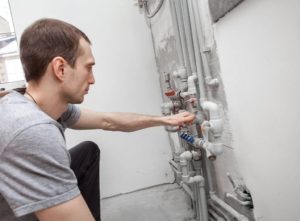 Factors affecting new boiler installation costs
Factors affecting new boiler installation costs
The price you’ll pay for your boiler installation will vary, depending on several factors. Generally speaking, the more complex the installation, or the more premium the boiler, the higher the installation cost of a new boiler will be.
The main factors that will affect the labour cost of fitting a boiler include:
- Type of existing boiler system
- Make and model of the new boiler
- Warranty length
- The complexity of the installation
- Any new pipework that needs adding
- If the boiler needs to be moved
- How many Gas Safe engineers are needed to carry out the new boiler installation
- Any prep work needed ahead of fitting the boiler
- Where you live (e.g. it’s typically more expensive to fit a new boiler in London and the South East than other parts of the country)
You’ll also want to consider if any other components of your new boiler system could impact the labour cost.
You’ll likely pay extra for installing premium magnetic filters, replacing radiators, or installing additional new radiators.
How to save money on the cost of new boiler installation
Boiler installation is a job for the experts. However, you could cut down on some of the labour costs by doing some preparation yourself:
- Remove any cabinets
- Clear the space around the boiler itself
- Clear the new boiler location, if you’re planning to move your boiler
- Provide the boiler installer with as much information about your home ahead of time – that way they’ll come prepared for the job
FAQs
How long is the warranty on a boiler?
Most good quality boilers come with warranties of between five and ten years. If in doubt, ask about your own boiler’s projected lifespan when you have it serviced.
How often do I need to get my boiler inspected?
We recommend that boilers have annual maintenance checks at least.
What does a boiler replacement cost?
With labour and extras added, you can usually expect a new boiler supply and the labour to install it to cost between £3,000 - £15,000.
The total replacement boiler cost will depend on whether you’re replacing the boiler like-for-like, or converting it to a different type.
The cost of replacing your boiler will also be higher if you’re planning on moving it to a new location.
You may spend £3,000-£5,000 if you want to convert a back boiler to a combi.
If you’re swapping a combi with another combi, on the other hand, you’ll spend around £2,500 - £4,000 on it.
What other costs are there when buying a new boiler?
The main extra cost of installing a new boiler will come from moving the boiler to a new location or changing fuel types.
Obviously, it is simpler to replace your boiler where it is, with the existing pipework rather than relocating it.
If your pipes are not large enough to deal with the run rate of your boiler and the water it needs to move quickly, then you will need new piping.
This means paying for the new pipes and some extra labour time.
A power flush of your heating system, as well as installation of magnetic filtering systems like MagnaClean, can improve heat efficiency and reduce bills.
A power flush costs between £350 and £800.
Thermostats are another cost, with many now choosing to upgrade to a wifi-enabled heating controller such as Nest, tado, or Hive. This can add around 200 + VAT to the total cost.
Of course, thinking about loft insulation or draught-proofing is also essential if you wish to cut down on bills in the long term.
How much does it cost to replace a system boiler with a combi?
You will be paying for the labour time of removing the old boiler and water tank, then the sourcing of the new combi boiler to replace it, which alone can be £1,500 + VAT.
You’ll want to budget around for the whole project. Remember, any complications with the installation may lead to additional labour costs.
Always speak to a trusted and vetted boiler professional to learn more about what’s involved in boiler installation. They can also give you a detailed quote for replacement boiler costs in your area.
It’s a choice between Vaillant, Baxi and Worcester Bosch, isn’t it?
Most plumbers and heating engineers will have their favourite brands, with Vaillant being seen as the mid-range go-to for many in the trade. Worcester Bosch is another favourite, although tends to be a little pricier in set-up costs and parts.
Baxi and Ideal boilers are other names you may see, although the Viessmann brand is gaining popularity and good reviews of late.
The better-known the boiler brand, the easier it will be to find parts should something go wrong. You may wish to research brands or speak to a tradesperson in your area.
Do I stick with a gas boiler or change to an electric boiler?
Electric boilers are becoming more popular as people see them as more environmentally friendly. And, they can be more fuel-efficient.
They provide heat and water in much the same way and usually need less maintenance (especially as they don’t have the potential to leak carbon monoxide).
Electric boilers work best in small-to-medium homes. But do remember that electricity does tend to cost more than gas and that fuel prices can vary.
What about biomass boilers?
Some people favour biomass boilers for being greener, but these are a larger investment than other boilers.
The average cost of installing a new biomass boiler is £7,000 + VAT. Talk to a central heating engineer in your area to discuss which boiler type is best for you.
What size boiler do I need?
The boiler size will depend on the size of your home. For example, a 1-bedroom flat will need a smaller boiler than a 3-bedroom house.
Generally speaking, you will need a 24kw to 30kw boiler in anything up to a 3-bed home. Larger homes will need something over 35kw, due to the number of radiators.
If you’re installing an electric boiler then you will need 9kw to 12kw for the average home.
The simplest way to calculate the size of electric boiler for your home is to times the number of radiators you have by 1.5 to give you the number of kw you need.
You want to get the right boiler size, so speak to your local boiler installers. They’ll be able to give you their professional advice and guidance for your home.
Are boilers expensive to replace?
Buying a new boiler is quite an investment for most people and represents a purchase that will probably outlast your latest car or computer. You want to get it right.
The average new boiler cost is between £1,200 - £10,000 for only the materials involved. In addition, labour for the new boiler installation can cost up to £1,250 - £4,000 + VAT.
Given the cost of replacing a boiler, you should always weigh up the cost of boiler repair versus replacing your boiler with a new one.
Is replacing a boiler a big job?
Replacing a boiler is a fairly standard job for boiler engineers but it does usually take time. Depending on the size of your house and the location of the boiler, installation can take anywhere from 6 hours to 4 days.
If you’re changing the type of boiler in your home or moving the boiler, it will take longer to complete the job.
Equally, if your boiler is in an awkward position and the installation is more complex then it will affect the timeframe.
How many years should a boiler be replaced?
The average lifespan of a boiler is around 10-15 years, if they’re well-maintained. We always recommend you have an annual boiler service carried out, to make sure your boiler is in good working condition.
Should I replace my 10 year old boiler?
Most modern boilers can easily work perfectly well for 10-15 years. If your boiler is 10 years old and is still working well, then chances are you’ll have a good few years left.
Regular maintenance and repairing small issues if/when the arise can add years to the life of your boiler.
However, if your boiler is constantly breaking down or needs major repairs, you might want to consider replacing it.
Why are boilers so expensive to install?
The combination of expensive equipment and labour prices makes the total replacement boiler cost quite hefty.
Depending on the size of your house and the placement of the boiler, its installation may take between one and two days.
Will a new boiler make my house warmer?
That depends on your home and your old and new boilers. If you have an old boiler, it’s likely that its efficiency isn’t great – potentially less than 50%.
Inefficient boilers will struggle to heat your home well, especially if you live in a large property.
One of the biggest benefits of installing a new boiler is that they tend to be 90%+ efficient. So, installing a new boiler can make your house warmer and lower your energy bills at the same time.
How long does it take British Gas to fit a new boiler?
According to British Gas, it takes 1 to 3 days to fit a new boiler – depending on the complexity of the installation and the type of boiler being fitted.
Who are the best people to fit a boiler?
We would always recommend hiring a Gas Safe engineer to fit your new boiler. We’ve even put together a guide to help you find the best Gas Safe engineers near you.
Get a new boiler installation quote
To get the most accurate cost of installing a new boiler, we recommend getting boiler installation quotes from at least three different installers.
You will also get a more accurate new boiler installation quote if you specify all the details.
This includes giving accurate measurements, providing drawings if necessary, and letting them know if you’re changing the type of boiler or its location.
The more information you can provide at the start, the more accurate the quotes you receive will be.
Find and book your trade with us and we'll guarantee their work up to £1,000*.
Guaranteed for 12 months. Eligibility and T&Cs apply

Working with professional estimators, we collate cost estimates for the common home improvement and repair jobs in the UK.
All the costs are estimates only. For accurate costs for your particular requirements, you are encouraged to reach out to professional tradespeople to receive a quote for your job.
Our estimators are Chartered Members (MRICS) of the Royal Institution of Chartered Surveyors and Members of the Chartered Institute of Building (MCIOB). See full disclaimer.
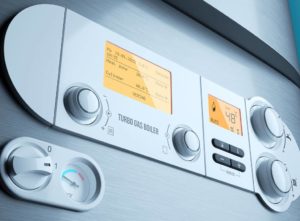
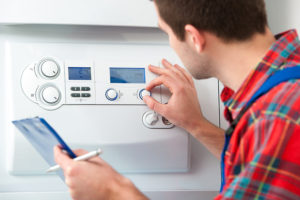
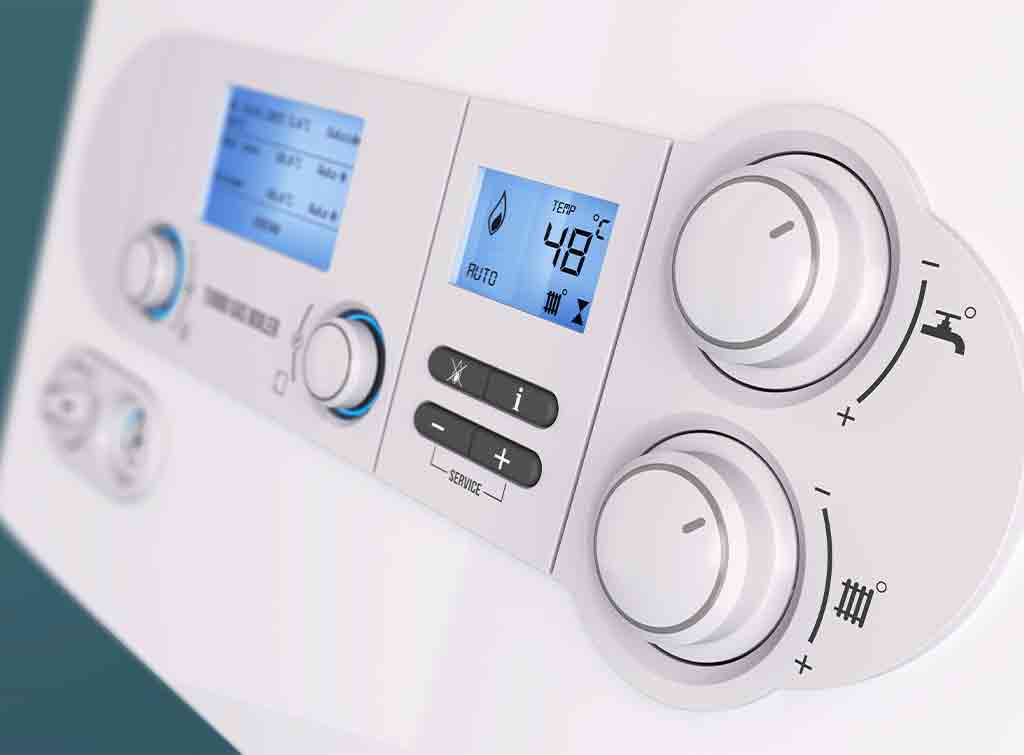
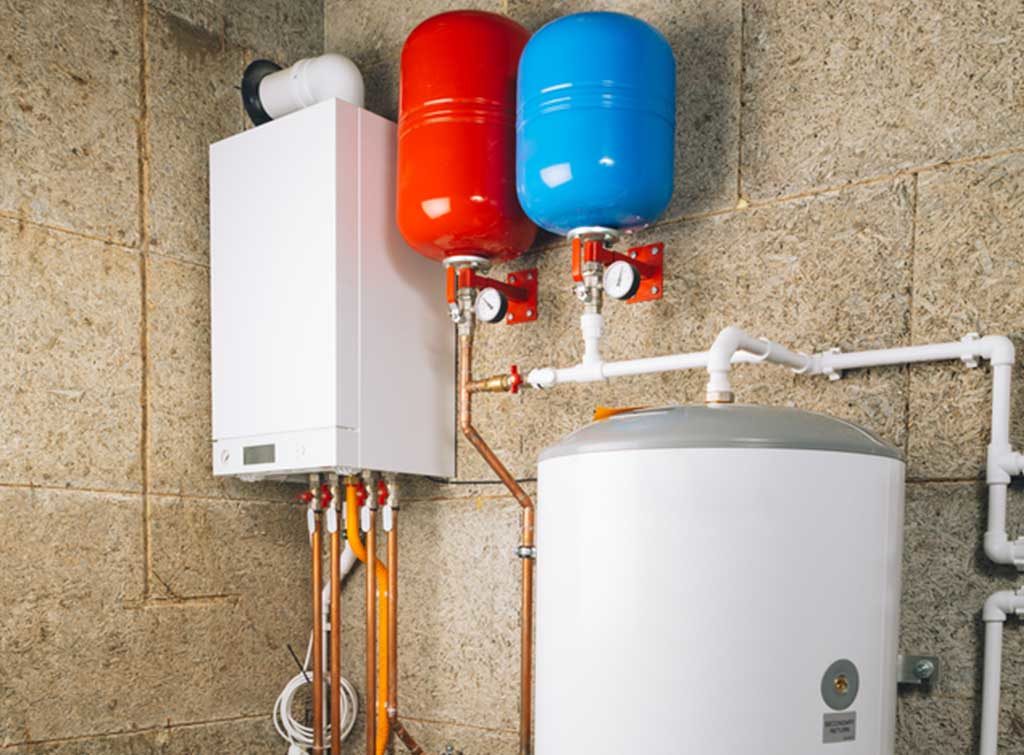
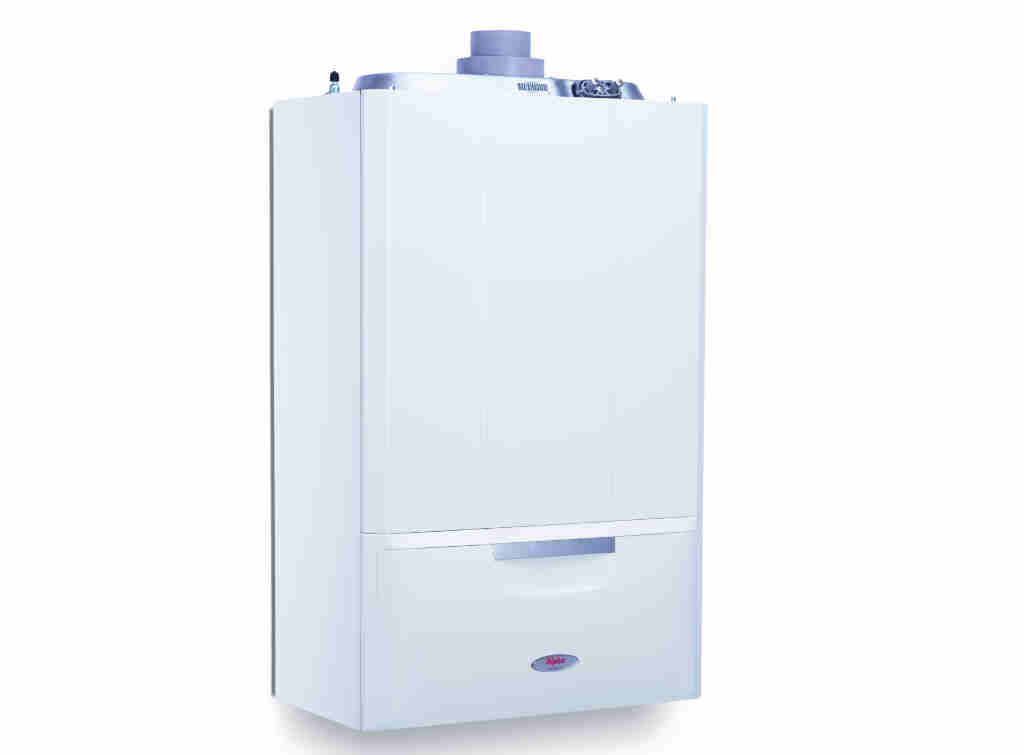
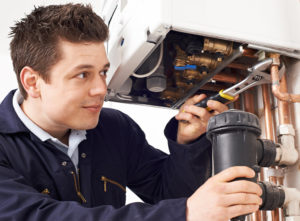
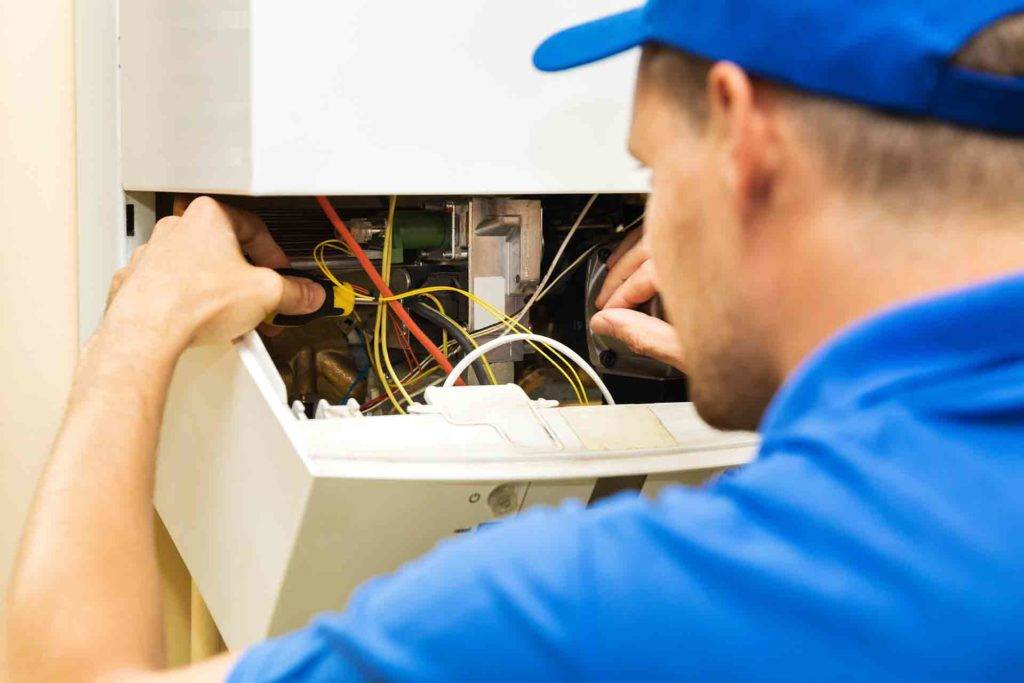
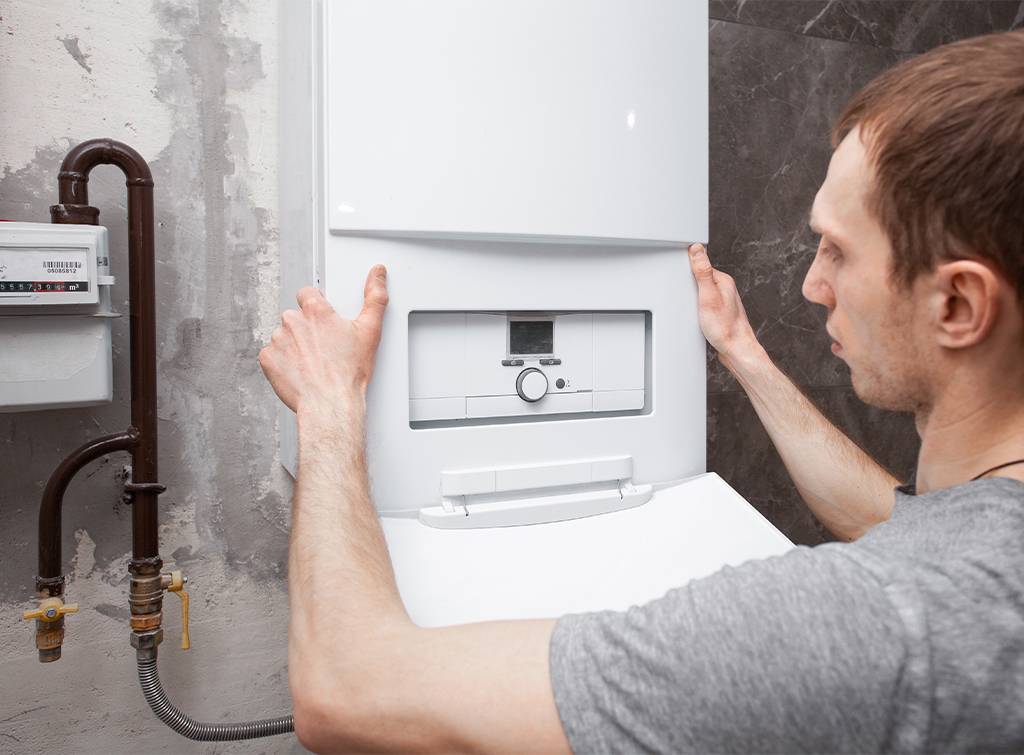
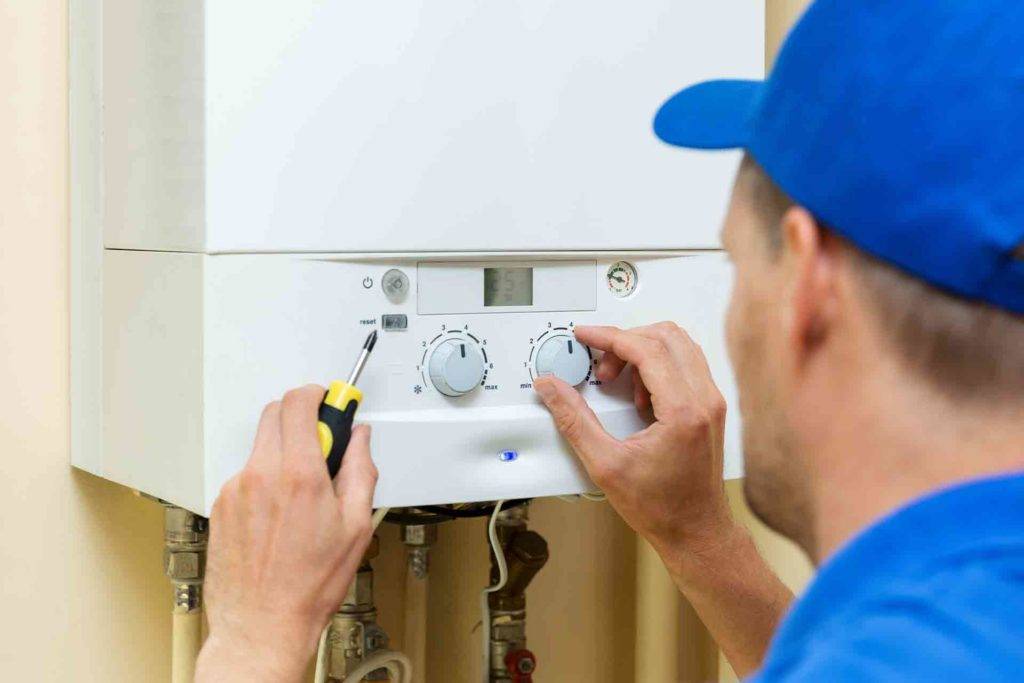
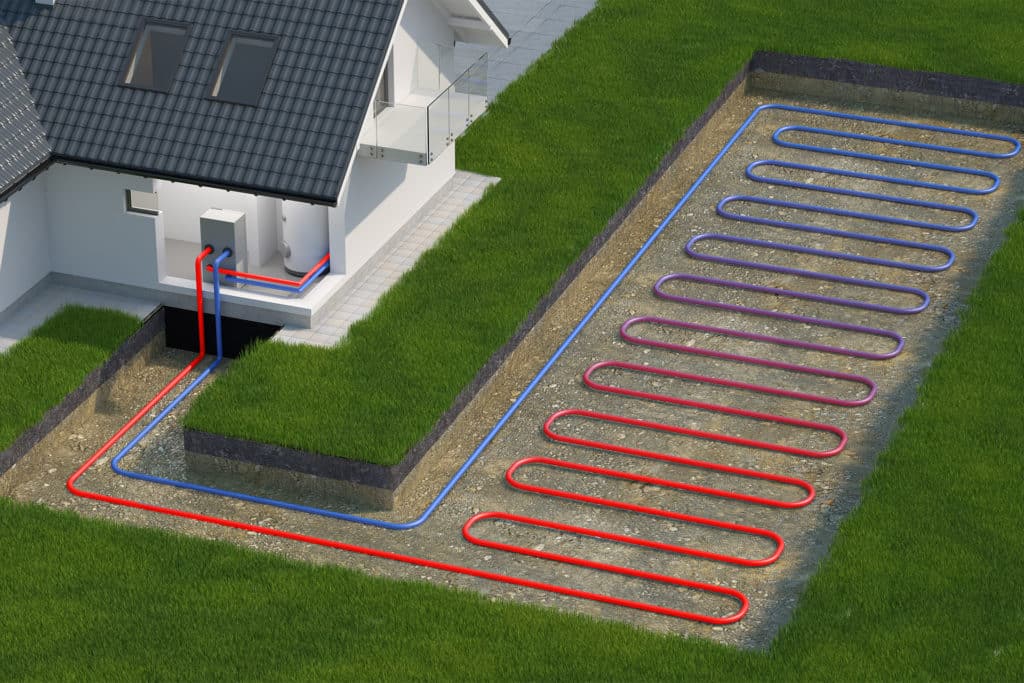
Sue Henderson
What a very useful, well explained, article.
Mike
This article was very helpful and explanatory. Thanks.
Mike Barlow
Very useful info generally thankyou